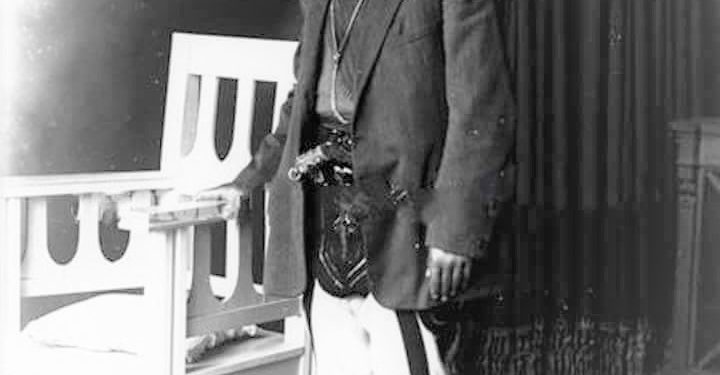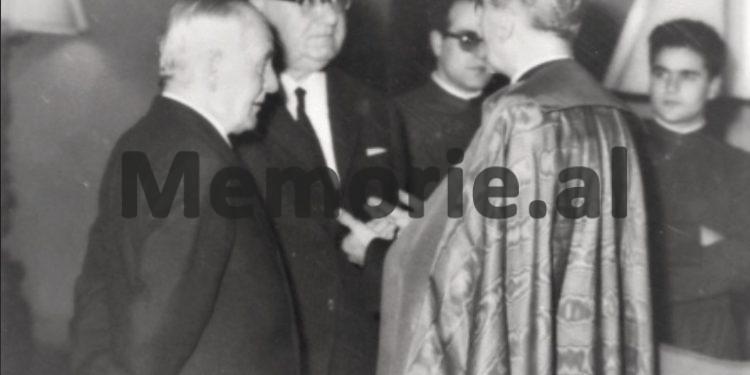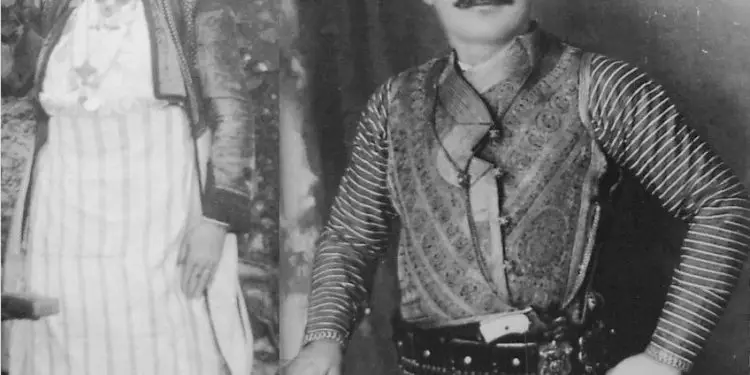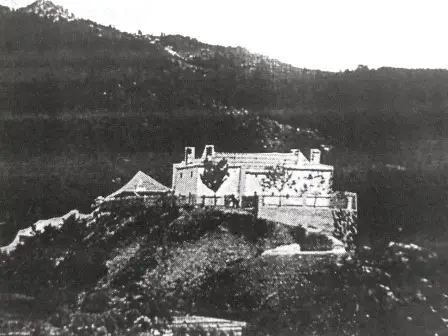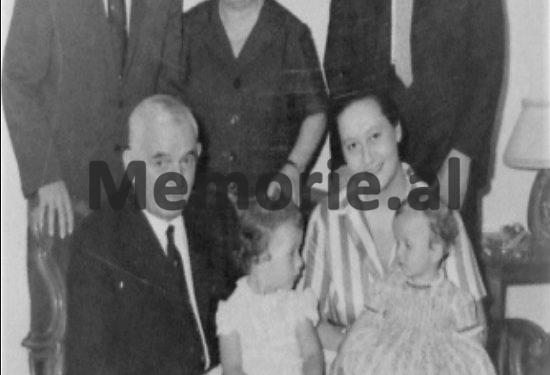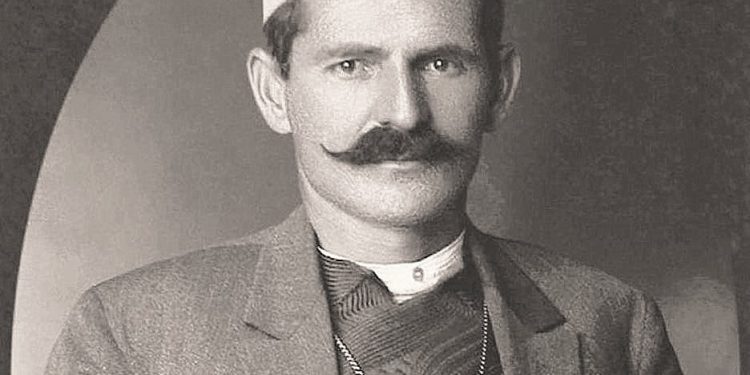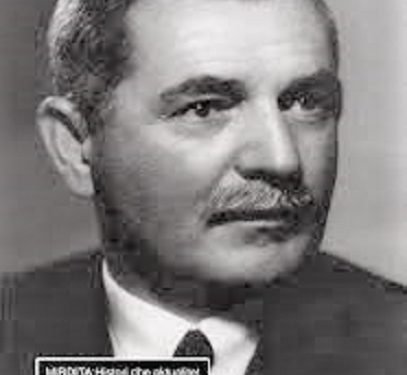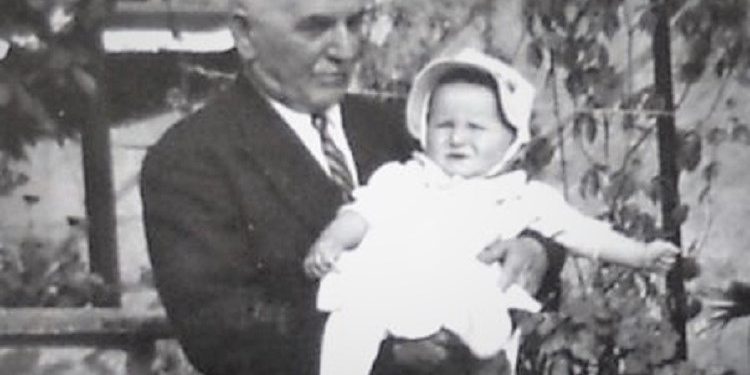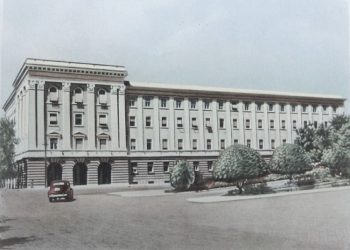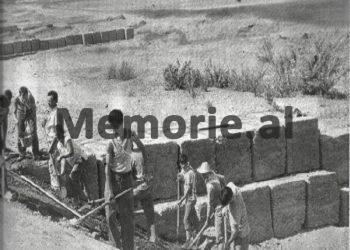From Ndue Oroshi
The first part
Memorie.al / “The door of the Kapedans of Mirdita, in the name and in the za in the whole Balkan peninsula and beyond, was a sacred ark, where the canonical norms were preserved over the centuries, i.e. the heroic-patriarchal essence, with a precious human core, the essence that saved the Albanian race from degradation and perversion. That visar was once the property of the whole nation, then the wild conditions of the Asian domination came and narrowed its circle of influence, and limited it to the mountains of Albania. The old spirit of the land laws, where more or less, beat the payada, in the blood of the Albanian, spread it all over the land of the homeland, and stuck everywhere, as the Albanian slave people moved. Foreign researchers and researchers, in the Kanun of Malevet, investigate the purest substance of the Arbnuer tribe and the patents of nobility, of the very ancient Indo-European. Kapidan Gjon Marka Gjoni, a carved man, a piece in the harsh curr, of our racial land, I represent the autochthonous tradition, the most detailed. In him the masculinity and humanity of the race was incarnated as an example”.
With these words of the patriot, professor Ernest Koliq, I am starting this modest article about the Captain of Mirdita, the wise and wise man, the politician and the visionary of the Albanian nation, who even though I live and work in extremely complicated circumstances, with honor and manliness, the duty of the centuries-old heir of the Gate of Gjomark, adapting to the new circumstances and keeping pace with the times, without neglecting the authentic, national and Canon traditions.
The life and national activity of Kapidan Gjon Marka Gjon, until 1939
Kapidan Gjoni was born in Orosh of Mirdita, on August 28, 1888. His father, Kapidan Marka Gjoni, was the grandson of Lleshi te Zi, who had a great name in Albania and the Balkans, towards the first half of the 19th century. According to the custom that is guarded son after son, at the door of Gjomarkajvet, as long as the parent is alive, it belongs to the sons to obey the father’s will, and to follow the order as a soldier.
On Easter Sunday in 1925, Kapidan Marka Gjoni died, after a life full of vicissitudes, also described by Faik Konica, in the temporary “Albania”. They were suddenly abandoned by the Turkoshaks, like their cousin Prenk Bib Doda, and like Hodo Beg Kopliku, were exiled to Anatolia. The longing for the homeland pushed him so hard in that exile that he decided to return, wherever he could. Without knowing the language, without means, he fled and traveled through Russia, Poland, Austria, he reached Mirdita, where the Ottoman authorities did not dare to disturb him anymore. In 1914, he came to Durrës to protect King Wied.
Along with the Kosovars of Isa Boletini, the sons of Mirdita, fell into fierce battles against the insurgents who wanted to stop the establishment of an independent Albanian state. The losses were great. After his father, Kapidan Gjoni, died, he became the leader and was charged with the responsibility of leading Mirdita, according to the historical tag of the door of Gjomark.
He approached his office, with that wealth of clear thoughts and determination, which always distinguished him, when he begged for his intervention in various cases, as a judge of Gojdhan and was voluntarily accepted by the people, and we as a warrior leader, designated by canon law. Although young, at the age of 37, Kapidan Gjon Marka Gjoni excelled in the height of his mission.
In 1926, surrounded by leaders, I made the first Zabitnama (Blood Reconciliation). He traversed Mirdita bajrak by bajrak, town by town, fixing confusion and reconciling blood. In 1926, Kapidan Gjon Marka Gjoni reconciled 360 bloods and graves (wounds). In 1928, after gaining a very high authority, Captain Gjoni made the second blood reconciliation. This time too, 260 bloods have been buried. Thus Mirdita became the most peaceful province in the North.
With this activity, Captain Gjoni’s fame grew so much that many Albanian and foreign activists ran to meet him. In 1928, Captain John Marka John went to Rome, where he was received with high honors by the Italian Government and by the Pope.
Captain Gjon Marka Gjoni in a conversation with Zogu, (then President of Albania), presented the bad situation of Mirdita from an economic point of view. The bird replied: “Mr. Kapedan, I know the situation of Mirdita, but you did well to raise this problem with me” – and added: “as of today, Mirdita is exempt from any state tax and the canon as a traditional law, on which the direct our mountains, he has been free in Mirdita”.
When Ahmet Zogu was proclaimed King in 1928, all the nobility of the Northern Mountains went to Tirana to congratulate him, including Kapidan Gjon Marka Gjoni, with the leaders of Mirdita. There the mountaineers show the problem of the leader, but Zogu before everyone called Captain Gjon Marka Gjon in the audience, everyone else later.
When he appointed the reserve officers, all with the rank of major and below, Captain Gjon Marka appointed Gjon as Lieutenant Colonel, the highest rank. Zogu valued the friendship that the door of Gjomark has had with Shpina e Zogolli, so he wanted these honors to atone for the harm he did to Mirdita in 1921; he thought and decided to make Mirdita comfortable, to honor them in a way special Captain John Marka John.
When captain Gjon Marka Gjoni, who was sure that the Italians were entering Albania, but did not know the date, in March of 1939, went to Tirana and in the audience he had with King Zog, he said these words: Madhni, the Italians are entering Albania. Fix the affairs (Relations) with Rome, because you took yourself, Albania and us by the neck. Tell us what to do.”
Zogu replied: “Yes, Mr. Kapedan, I have problems with the Ministers in Italy, but I will fix them. You go calmly and wait for my word”. It did not last long, and Zogu, in the greatest dominion, moved to Greece. But when Zogu arrived in Larissa, Greece, he gathered his suite with instructions. There he declared: “We had only one friend, the Captain of Mirdita Gjon Marka Gjon, who told me that the Italians are entering Albania”.
After the Italians occupied Albania, Count Ciano, the Italian Foreign Minister, came to Tirana. He asked for a delegation of Albanians to go to Rome, and handed over to the King of Italy, Vittorio Emanuele III, and the Kunora of Skanderbeg. The Shkodra delegation meets in Tirana to examine the problem. In order to inform me of Italy’s demands, the delegation of Shkodra instructs Captain Gjon Marka Gjon to go and talk with Count Çiano, with translator Pater Anton Harapi, O.F.M.
During the ongoing conversation, Count Çiano requested that Captain Gjon Marka Gjoni, at the head of the Shkodra delegation, go to Rome and offer him the Kunora of Skanderbeg, Vittorio Emanuele III. Captain Gjon Marka Gjoni replied: “Albania was conquered and I did not cross Kunora e Skanderbeg across the Adriatic, except by hand and foot.”
Captain Gjon Marka Gjoni did not go to Rome to send the Kunora of Gjergj Kastriot-Skënderbeg to the King of Italy, Vittorio Emanuele III. This clearly proves that Captain Gjon Marka Gjoni did not trick either the King or Albania.
Capitan Gjon Marka Gjoni, was also a great reformer of the Canon. In 1937 (page ‘Hylli i Drita’, July-August 1937; p. 417-18), he convened and presided over an assembly of chiefs and elders in Mirdita, to bring about changes in some extremely anachronistic customs. The secretary at that meeting was Don Zef Skana, parish priest of Fandi.
The Most Righteous Zani, the Abbot, Monsignor Gjini, and the prefect of Shkodra were present as members of honor. In many other cases, the Captain, without making changes, gave an interpretation of the points of the Canon, which coincided with the spirit of the new times. Like all wise leaders, he valued the spirit, not the letter, of the law.
The organized anti-communist resistance of Kapidan Gjon with his sons and forced exile
Seeing that there is no other way and that the communists do not know any language of national dialogue, Kapidan Gjon Marka Gjoni, together with his sons: Marku, Ndoun and Lleshi, will start the national resistance. Thus, in 1944, Kapidan Mark Gjon Marku, with the full support of his father, Kapidan Gjon Marka Gjonit, founded the “National-Independent Group” in Shkodër, through which he developed his political activity.
After an invincible resistance developed by the three sons of Kapidan Gjon Marka Gjon, Marku, Ndou and Lleshi, supported by Kapidan Gjoni, and seeing that the communist forces were getting stronger, Kapidan Mark Gjon Marku, without telling anyone, had made a decision that together with his third brother, Kapidan Llesh Gjon Marku, to lead the war for Ethnic Albania, while for his father, Kapidan Gjon and the second brother, Kapidan Ndue Gjon Marku, he had made decisions to go to the West, to continue it the anti-communist war, so that in this way, the heritage of the door of Gjomark is not completely extinguished.
Kapidan Marku told him his decision and after many attempts, managed to convince Kapidan Gjon Marka Gjon to let his beloved Mirdita go, accompanied by his second son, the political scientist Kapidan Ndue Gjon Marku. In Kastra, on January 27, 1944, they shook each other’s hands and, taking the last halal, they parted forever:
Kapidan Gjon Marka Gjoni, accompanied by his son, Kapidan Ndue Gjon Marku, from the other two sons, Marku and Lleshi, who stayed in Albania, fighting against communism, until they fell heroically, one on June 14, 1946, while the other on August 9, 1947. The meeting of Kapidan Gjon Marka Gjon together with Professor Ernest Koliqin led to the preparation of a plan to form a political organization in exile.
They baptized this organization with the name “Independent National Bloc”, which was formed on November 6, 1946 in Rome. As for the “Independent National Bloc”, we have given clear notes in an earlier article published about Kapidan Ndue Gjon Marku, here in this article we will dwell on the description given by contemporaries, who knew and worked with Kapidan Gjon Marka John.
Professor Ernest Koliqi, in an article published in “Shejzat” (no. 5-6 1966), will write about Kapidan Gjoni: “We exiles who lived near Kapidan, even had the luck to meet him for a day, with years in a row, we will remember his face with generous thin and sharp lines, as we used to see them when, lovingly surrounded by us, he participated in our talks.
He was speechless. The wise and wise man’s remarks shook the assembly. The experience we gained during a difficult life full of unexpected shocks softened the conversation whenever he intervened. A light sense of humor, which the men of the mountains do not lack, a grain of salt without sharp edges, made the conversation delicious, when he told stories about old stories. He had a strange attitude. Strings of memories related to Albanian events were elaborated in his report, like movie reels during the days when he was having fun”.
Meanwhile, Professor Zef Valentini, in an article also published in “Shejzat” entitled “For a flag to raise”, when he talks about Kapidan Gjoni, says: “Remembering the action of old Dukagjin in the field of the Canon, can may he be the one who gave Gjomark that competence, as the oracles told me, in canonical work. Captain Gjoni, as I told him, – continued Professor Zef Valentini, – he had that competence and combined it with a knowledge competence, which he did not sell at all, but he almost took it with him, like a cow, a cow, a cow personal, that who knew more, could shoot it down.
I had the good fortune to work with Kanuni many times, and I extracted from him numerous and valuable notices, which can be found in my publications, marked with his name. But I was also happy many times, when his answers were not exactly as I expected them, they left me confused, or in doubt, did he understand the topic well, did he answer with wisdom and knowledge, but I was surprised. Good, but after studying more deeply, I have always found that there were other views, which I had not found, and which require a measure and a balance, more amenable to the dictates of the Canon.
His Majesty’s behavior always seemed to me to be the noble but friendly behavior of a constitutional prince, as well as democratic princes, who even today in this republican, modern world, are the pleasure of their people. It could be said correctly, – Professor Zef Valentini concludes this article, – I don’t believe that it can be denied that the door of Gjomark, even though it had its own objections and harshness, even though there were no mistakes or bloodshed in the difficult history and its length, it has been anointed with its population, it has judged it, it has led it, it has represented it and it has kept it, but the heart of the head of the Mirdituer Community, the pillar of its flag”. Memorie.al
The next issue follows




